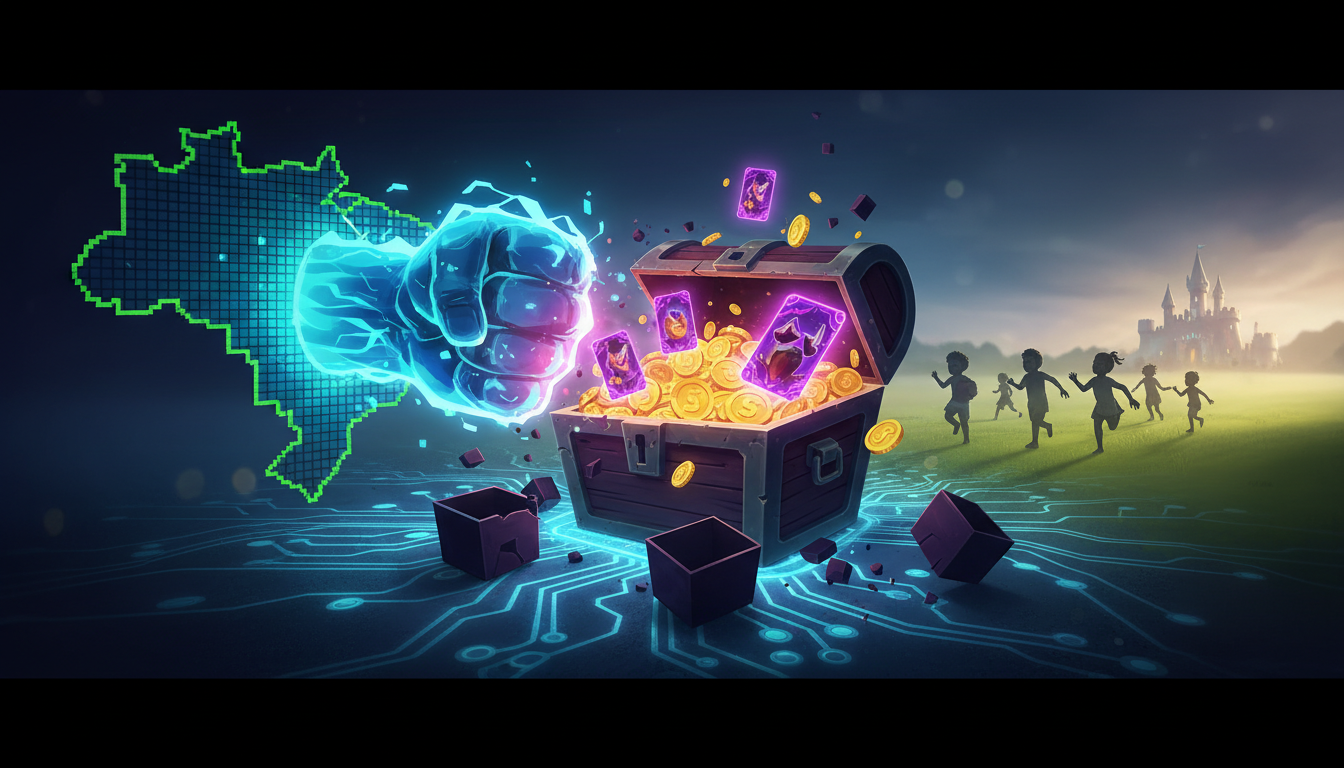Brazil Strikes at Predatory Monetization, Bans Loot Box Sales to Minors
2025-10-01

Image credit: AI-generated by Gemini Imagen
In a decisive move that adds a major South American economy to the growing global front against controversial monetization, Brazil has officially banned the sale and provision of loot boxes to minors. The prohibition was enacted through a presidential decree, signed by Luiz Inácio Lula da Silva, solidifying a new era of consumer protection for the nation's young players.
This is not a standalone ruling, but the cornerstone of a comprehensive legislative package known as the Marco Legal dos Games, or the Legal Framework for Games. With this framework, Brazil is planting a flag, signaling its intent to formally regulate the video game industry from top to bottom. The new law represents a significant government intervention into a multi-billion-dollar market, targeting practices widely criticized as predatory and placing Brazil alongside European nations like Belgium and the Netherlands in the fight for a more transparent digital marketplace.
A Framework of Protection
The Marco Legal dos Games is far more ambitious than a simple loot box ban. According to reports from Eurogamer and GamesIndustry.biz, the legislation erects a broad scaffolding of consumer protections designed to empower players and hold developers accountable.
Under the new law, game companies will be mandated to provide clear and accessible channels for players to submit complaints and requests, ensuring a direct line of communication for consumer issues. Furthermore, the legislation explicitly requires the implementation of parental control tools for any games available to children and teenagers. These measures, combined with the core ban on loot box sales to those under 18, create a multi-pronged strategy aimed squarely at shielding a vulnerable demographic from potentially harmful monetization schemes.
Formalizing an Industry
While player protection is the headline act, the Marco Legal dos Games also serves a crucial dual purpose: the formal legitimization of the video game industry within Brazil's economy. As detailed by GamesIndustry.biz, the law officially recognizes and provides a regulatory basis for a wide range of professions within the games sector, including artists, designers, and programmers.
This aspect of the framework suggests a more holistic governmental approach. The legislation is not merely punitive; it is foundational. By simultaneously cracking down on controversial business practices and formally acknowledging the creators who power the industry, Brazil is attempting to foster a more mature, stable, and responsible domestic gaming ecosystem.
A Victory for Advocates
The move has been framed by industry observers as a significant step forward for the global campaign against predatory in-game monetization. As suggested by reporting from Eurogamer, the sentiment among consumer protection advocates is that this is a major victory. By taking a firm legislative stance, Brazil has added its considerable weight to the argument that chance-based monetization mechanics have no place in games targeted at children.
Yet, as the ink dries on this landmark decree, a number of critical questions remain unanswered. The initial reports, while confirming the law's passage, offer no details on the specific mechanisms for enforcement. The penalties for non-compliance, the technical requirements for age-gating purchases, and the exact timeline for when these rules will take effect have not been specified.
In this information vacuum, the industry holds its breath. There has been no public reaction from major publishers or their trade organizations, the very companies whose revenue models will be most directly impacted. Brazil has made its move. The world is now watching to see how the industry responds.